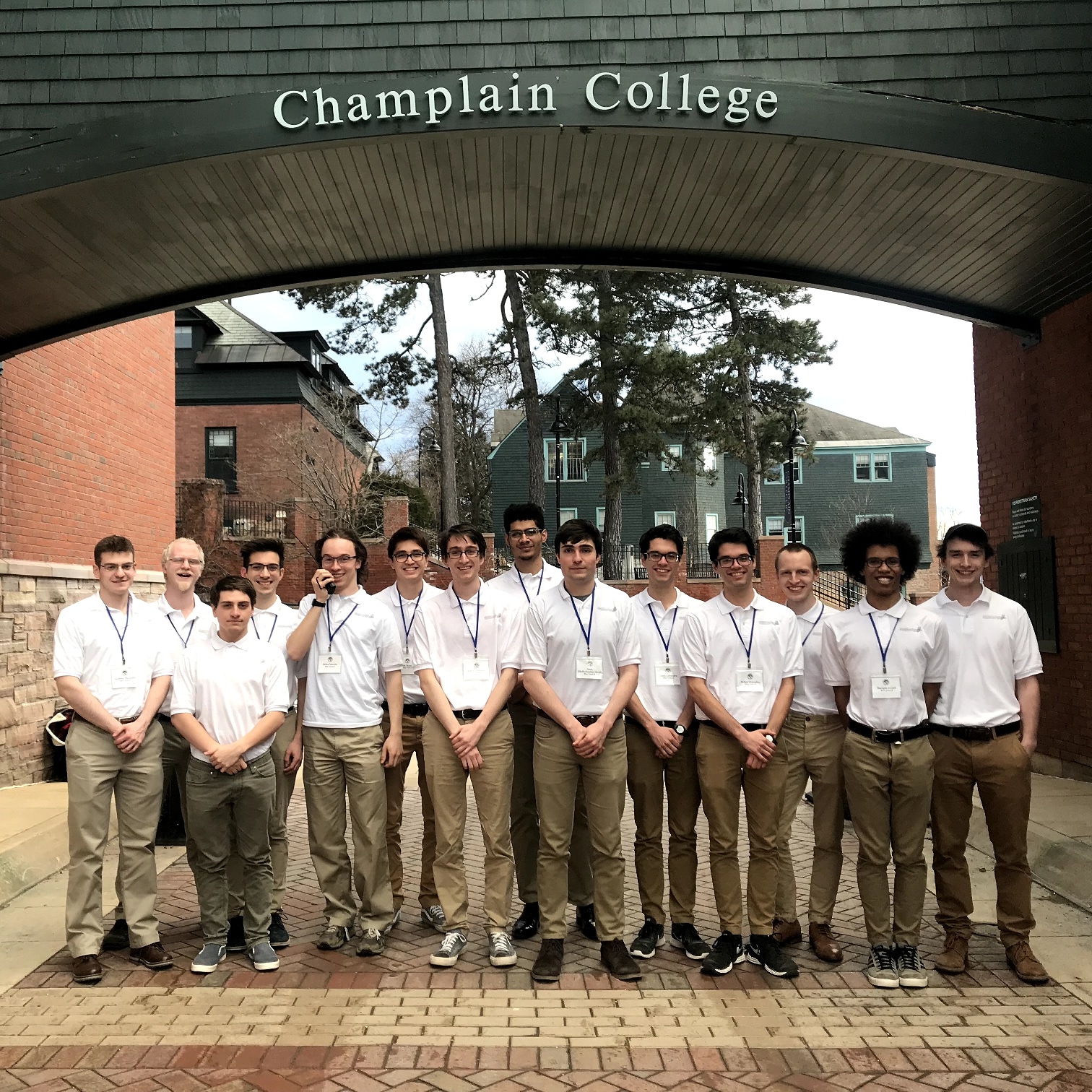This year, the University of Maine’s Cybersecurity Team (UMCST) looks to teach students about defensive methods of network safety through weekly meetings and immersive labs, eventually leading to competitions in the coming months and spring semester. With a heavy focus on teaching and educating new recruits, UMCST seeks to provide a well-rounded experience of both fun and preparation for entering the workforce after graduation.
“I joined the team halfway through my sophomore year and came [mostly] because of a pizza party,” Miles Martin, fourth-year computer engineering student and president of UMCST said. “There was a really interesting presentation, [which claimed the team] would present me with so many opportunities to develop myself professionally, but also take a lot of knowledge with me when I leave the club. It sounded like a great way to spend my time, [and at this point, I] have [been] doing this for the last two and a half years.”
The group regularly meets online Wednesday evenings and Saturday afternoons, ethically practicing and learning about network environments. UMCST teaches the methodology behind both defending and hacking as preparation for regular competitions, breaking down what Martin calls “infamous hacks.”
In October, the group will participate in the Hivestorm competition, a search-and-repair event which will test their ability to assess network weak points against professional-level hackers, then will move on to a combination of offensive and defensive events in the fall.
“Hivestorm isn’t the only competition we do. We also do a primarily offensive competition in the fall called Collegiate Penetration Testing Competition (CPTC), and a defensive one in the spring, which is Northeast Collegiate Cyber Defense Competition (NECCDC),” Martin said. “[During NECCDC,] we get hacked in a fake professional environment and receive tasks from our fake bosses, which we respond to as if they’re our actual bosses, and keep network services from breaking down. Then we have another competition where we’re supposed to play the role of [hackers]. By the end of both competitions, we write reports which detail our findings or incidents.”
Outside of competitions, many members of UMCST take part in an educational initiative with the goal of bringing network security into the classroom.
“This year, we participated in a [separate] research project to create a cybersecurity education initiative — a platform to learn cybersecurity called Scalable and Portable Infrastructure for Cybersecurity Education (SPICE),” Martin said. “We are working on it, but some parts are developed already. Our initial vision, and it may still be where we end up, was to have it divided into three major sections: physical infrastructure as a Mobile Access Platform (MAP), cloud infrastructure as a reliable remote platform and some things hosted in the data center on campus.”
With the idea of creating ease of use through automatic repetition and long-running services hosted in this platform, SPICE will allow a quick set-up time, providing a fantastic solution to expanding under some restrictions during COVID-19.
“Since it’s portable, we’d be able to deploy a lab pretty quickly in a classroom or anywhere,” Liam Greenlee, fourth-year electrical engineering student and UMCST secretary, said. “It makes it easier to teach students. In our previous setup, you would have to be in the classroom we’re set up in. It wasn’t mobile, so it was difficult to have a lab somewhere else.”
In terms of adapting methods and routine to fit with UMaine’s recent COVID-19 regulations, the UMCST has not yet faced a large shift, since many of their practices are online already through streaming either via YouTube or on Zoom meetings. This makes it easy for both members and new recruits to jump online and start becoming involved.
For those who are interested, Greenlee notes that many existing members started with no previous knowledge of cybersecurity practices, and to not be afraid of reaching out, regardless of year or major. However, if a member expresses interest in taking the route of cybersecurity post-graduation, all have the potential to get incredible job placements as a result of participating in this team.
Particularly active on their Discord server and YouTube livestream, you can find information on UMCST via their website, https://umcst.maine.edu/, which includes their social media links to Facebook, Twitter and other platforms under the handle @UMCST.










